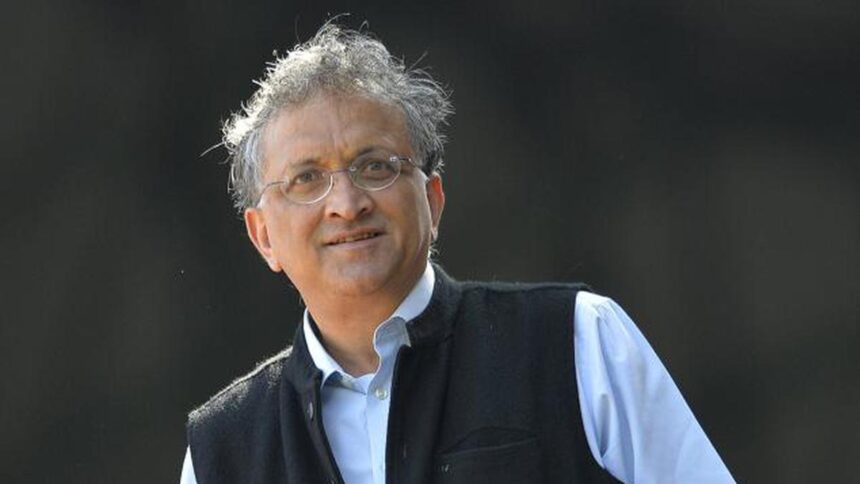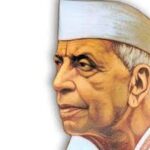Ramachandra Guha: A Brilliant Historian and Public Intellectual
Ramachandra Guha is one of India’s most renowned historians, public intellectuals, and authors. Known for his deep, insightful analyses of India’s history, politics, and society, Guha has built a legacy that extends far beyond academia. His work is characterized by its intellectual rigor, clarity, and passion for social justice. Through his books, essays, and lectures, he has contributed significantly to the understanding of India’s past, its democratic evolution, and its contemporary challenges.
Early Life and History of Ramachandra Guha
Ramachandra Guha was born on April 29, 1958, in Dehradun, India. He hails from a family that valued education and intellectual engagement, which played a key role in shaping his career. Guha completed his schooling at St. George’s College in Mussoorie and went on to study at the prestigious St. Stephen’s College in Delhi University. He later earned a degree in Sociology from the Delhi School of Economics.
Guha’s early academic interests were rooted in history, but it was during his post-graduate studies at the Indian Institute of Management (IIM) Bangalore that he decided to pursue a career in history and sociology. His work reflects his ability to blend history with sociological insights, providing a comprehensive view of India’s political and cultural evolution.
Career and Major Works
Ramachandra Guha’s career is marked by his multifaceted contributions to history, politics, and social commentary. His first major work, “The Unquiet Woods: Ecological Change and Peasant Resistance in the Himalayas” (1989), focused on the environmental and social struggles of rural India. The book offered a detailed account of the Chipko movement, which sought to protect forests in the Uttarakhand region. This book established Guha as a leading scholar in environmental history, and his work in this field continues to inspire many.
However, it was his monumental book “India After Gandhi: The History of the World’s Largest Democracy” (2007) that brought him widespread recognition. The book, which covers the political, social, and economic history of India after its independence, is considered one of the most authoritative and comprehensive works on modern India. Through this work, Guha captured the complexities of India’s post-independence journey, addressing the triumphs and challenges faced by the country in its attempt to build a democratic and inclusive society.
Guha’s “Gandhi Before India” (2013) and “Democracy: Stories from India” (2016) are also important contributions to the field of Indian history, particularly in understanding the life of Mahatma Gandhi and the broader implications of Indian democracy.
Daily Life Impacts of Ramachandra Guha’s Work
Guha’s work has had a significant impact on the way Indians—and the world—view the country’s history, politics, and culture. His writing is not confined to academic circles; it resonates with a wide audience, from students to policy-makers and general readers. His analysis of India’s democratic experiment, its challenges, and its successes has become a critical resource for anyone looking to understand the complexities of Indian society.
Beyond his books, Guha’s regular columns and essays in newspapers and journals have made him a prominent public intellectual. His writings provide a much-needed perspective on contemporary issues such as environmental degradation, the state of democracy in India, and the role of India in the global community. Through his public engagements, he has challenged readers to think critically about the state of the nation and the future of democracy.
Guha’s influence can also be seen in his advocacy for environmental conservation and social justice. As a vocal supporter of ecological and environmental issues, he has worked to highlight the connection between history, society, and the environment, urging readers to understand the importance of sustainable living and responsible governance.
Significance and Observance of Ramachandra Guha’s Legacy
Ramachandra Guha’s significance extends beyond his scholarly achievements; he has played a crucial role in shaping public discourse in India. His work has brought important issues, such as environmental sustainability and democratic integrity, to the forefront of public consciousness. By writing extensively on the challenges and triumphs of Indian democracy, Guha has contributed significantly to the ongoing conversation about what it means to be a democratic society.
His writings continue to be celebrated in academic circles and beyond. Universities and institutions invite him to deliver lectures and engage in discussions about India’s history, politics, and the future of democracy. His books are regularly used in university curricula, making him a key figure in contemporary history and political science education in India.
In recognition of his contribution to history and public discourse, Ramachandra Guha has received numerous awards, including the Sahitya Akademi Award and the Padma Bhushan, India’s third-highest civilian honor.
Key Facts About Ramachandra Guha
- Scholar and Public Intellectual:
Guha is one of India’s most well-known historians, whose works focus on a range of topics, including modern Indian history, environmental history, and the politics of democracy. - India After Gandhi:
His book “India After Gandhi” is a landmark work that offers a comprehensive history of India post-independence, making him a household name in the field of modern Indian history. - Environmental Historian:
Guha’s contributions to environmental history are significant, particularly his early work on the Chipko movement and his continued advocacy for sustainable development and environmental preservation. - Advocate for Social Justice:
Throughout his career, Guha has been a strong advocate for social justice, focusing on issues such as inequality, environmental degradation, and the need for more inclusive democratic processes. - Author of Several Influential Books:
In addition to “India After Gandhi”, Guha has authored several influential books, including “Gandhi Before India” and “The First Spring”.
FAQs About Ramachandra Guha
Q: What is Ramachandra Guha’s most famous book?
A: His most famous book is “India After Gandhi: The History of the World’s Largest Democracy”, which provides an in-depth history of India after its independence.
Q: What makes Ramachandra Guha’s work unique?
A: Guha’s work is unique because of his ability to blend history with sociology and politics. His writing is accessible to the general public while maintaining a high level of academic rigor.
Q: What are the main themes in Ramachandra Guha’s writing?
A: Guha’s work covers themes such as the history of Indian democracy, environmental conservation, social justice, and the role of India in the global political landscape.
Q: How has Ramachandra Guha influenced India’s intellectual landscape?
A: Guha’s work has shaped public discourse on India’s democracy, its history, and its future. He is a key figure in contemporary Indian thought and continues to influence scholars, policymakers, and the public.
Why Ramachandra Guha is Important to Society
Ramachandra Guha is important to society because of his ability to critically examine India’s history and its current challenges. Through his work, he has encouraged a more nuanced understanding of India’s democracy and its struggles for equality and justice. His writing empowers readers to reflect on the complexities of their society and become more engaged in the world around them. By offering clear, well-researched perspectives on contemporary issues, Guha has become a guiding voice for those who seek to understand the complexities of modern India.
In conclusion, Ramachandra Guha’s contributions to history, politics, and public discourse are invaluable. He continues to inspire readers, scholars, and activists alike with his intellectual rigor, clarity, and commitment to justice. Guha’s work not only serves as a tool for understanding India’s past but also provides a framework for thinking critically about its future.










